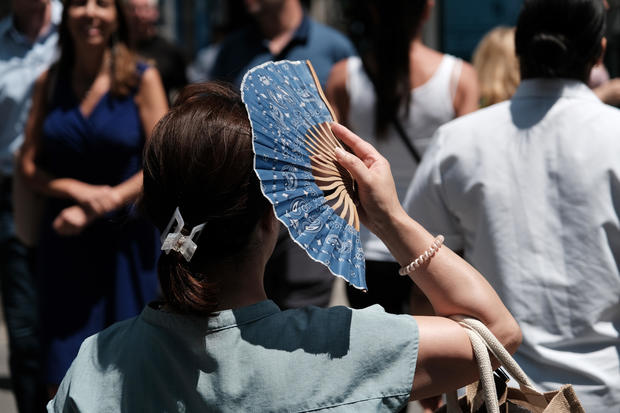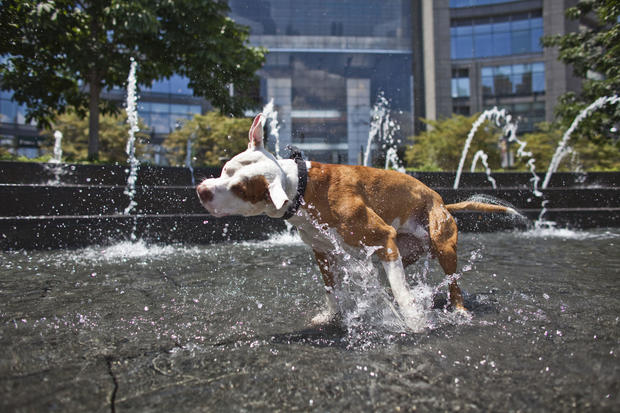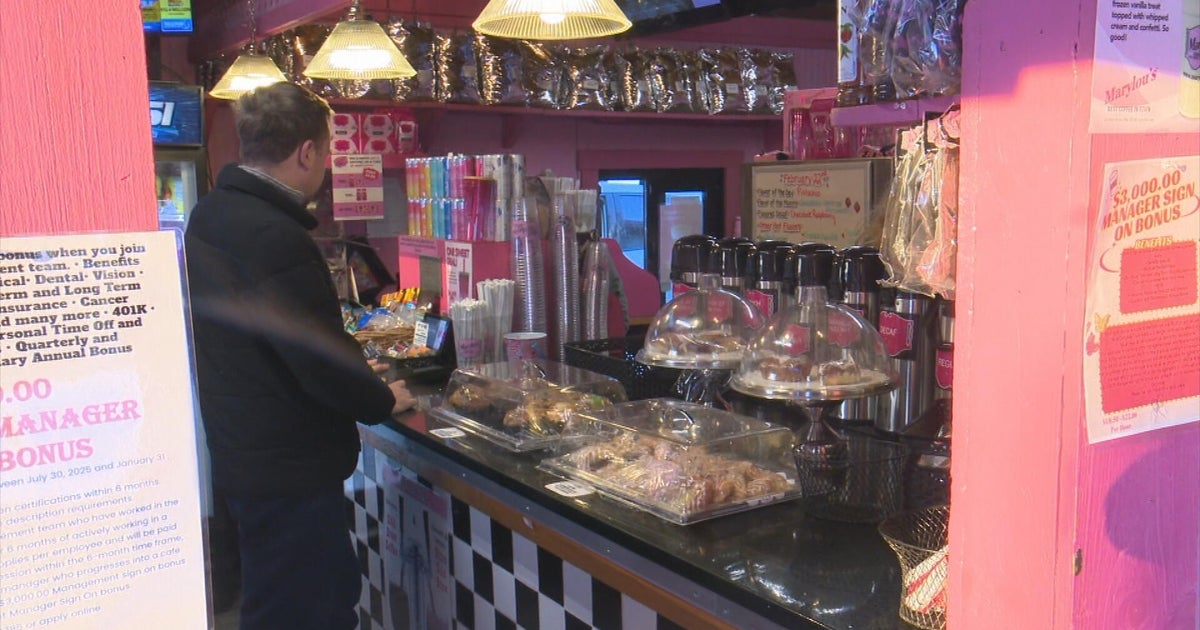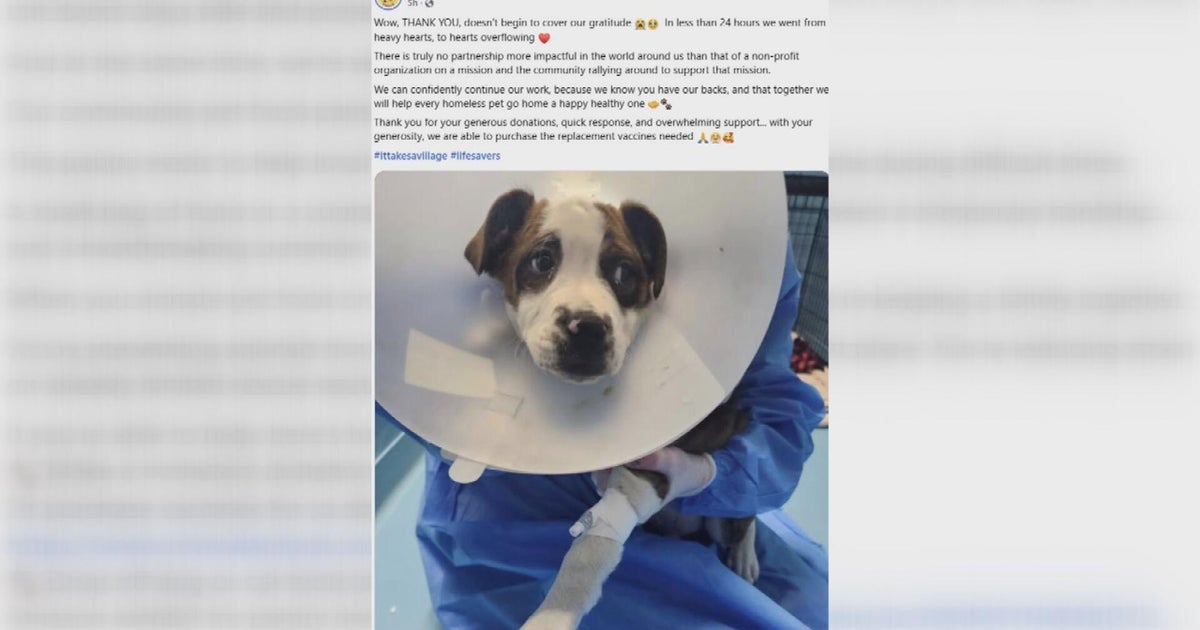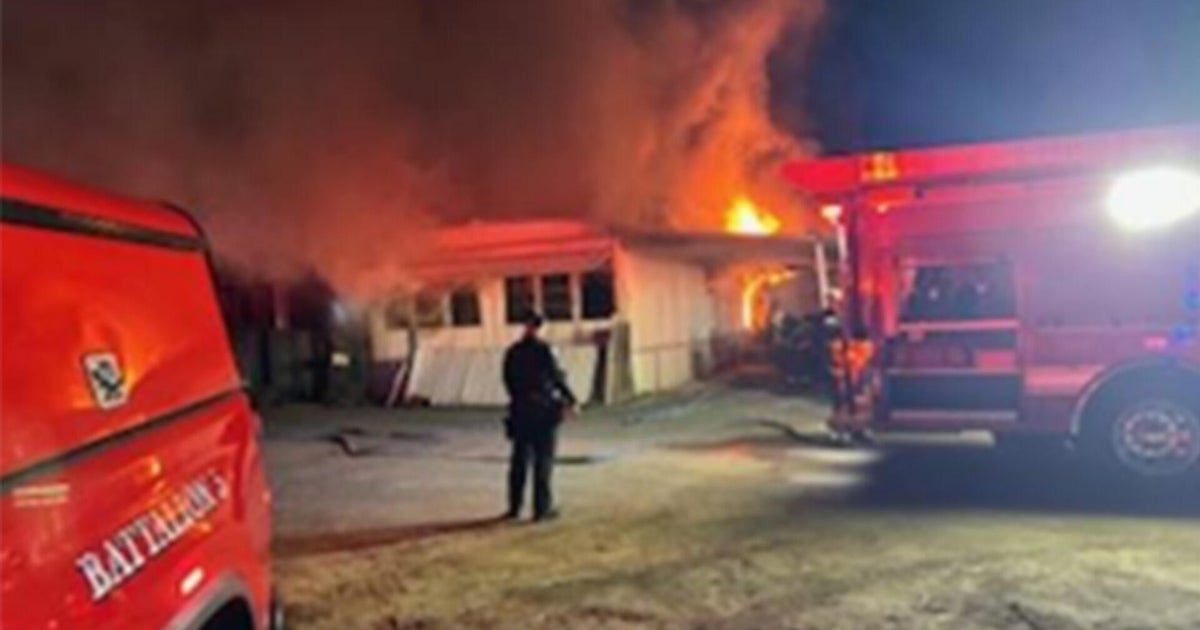As excessive heat sweeps NYC, watch for heat stroke symptoms in people and pets – like what your dog's drool may be telling you
NEW YORK -- Excessive heat is expected to sweep New York City this summer, and it's the number one weather-related killer in the nation.
In the city alone, heat is blamed for hundreds of deaths each year, especially during heat waves.
Here's what to know about heat stroke and heat exhaustion, plus, how to keep your pets and home safe.
New York State has hundreds of cooling centers where people can stop by and cool off. Find a list of statewide locations here or an interactive map of city locations here.
What is heat stroke and its symptoms
Heat stroke is the most serious heat related illness and it can result in disability or death. Heat stroke happens when the body can no longer control its temperature.
When someone experiences heat stroke, their body temperature can rise to 106 degrees or higher within 10 to 15 minutes and they stop producing sweat, according to the Centers for Disease Control and Prevention.
"Heat stroke occurs when the body's temperature rises quickly and can rapidly lead to death," said New York City Health Commissioner Dr. Ashwin Vasan. "Call 911 if someone you know displays the following signs: Hot, dry skin or cold, clammy skin."
"Extreme heat is the most dangerous weather phenomenon we have in New York City. We lose over 350 New Yorkers a year, on average, to heat," added Office of Emergency Management Commissioner Zach Iscol.
Symptoms include:
- Hot, dry skin
- Confusion, hallucinations or disorientation
- Loss of consciousness or being unresponsive
- Nausea or vomiting
- Trouble breathing
- Fast, strong pulse
- Weakness
- Dizziness
Heat stroke vs. heat exhaustion
Heat exhaustion, on the other hand, is the body's response to a loss of salt and water, usually through sweat. Unlike heat stroke, these symptoms include heavy sweating, as well as thirst, irritability, headache, elevated body temperature and decreased urine output.
Elderly people are the most susceptible to heat exhaustion, along with people on blood pressure medications and outdoor workers.
During excessive heat, doctors recommend:
- Limiting time outdoors
- Drinking plenty of water
- Avoiding coffee or alcohol
- Exercising during cooler times of day
- Eating light meals
- Staying in the shade or air-conditioned places
Heat stroke in dogs
Just like humans, our pets can suffer heat stroke, too. Signs of heat stroke in dogs include heavy panting and drooling, being weak or lethargic, bright red gums and bloodshot eyes.
"Heavy panting, sometimes they can have discoloration in the tongue, they can be disoriented, they can be weak and even vomit," Best Friends Animal Society Lifesaving Center Executive Director Marlan Roberts told CBS New York. "If you ever notice those signs while you're out and about with your pet, it may be a good idea to seek a veterinarian."
Roberts also recommended pet clothing and sunscreen to protect them from too much exposure, and to remember a life vest when around water.
"It's important to make sure that our pets have access to clean and fresh water at all times," he said. "Ideally, during these warmer months, our pets should be kept indoors. If they happen to need to go outside, just make sure they have access to a shady area."
Experts say dogs should drink cool, not cold, water to cool them off gradually. You can also cover them with a towel soaked in lukewarm water and wipe their paws with rubbing alcohol.
Heat related power outages
Excessive heat can strain the power grid and cause service blackouts. Con Edison monitors and manages its voltage and urges customers to avoid using appliances like washing machines, dryers, microwaves and dishwashers between 2 p.m. and 10 p.m.
If you have air conditioning, set it to the highest temperature that is comfortable and turn it off when you're away. Only run one air conditioner at a time, and use fans to help circulate the air.
The utility recommends setting your air conditioning to 78 degrees and says every degree warmer saves as much as 3% on your bill.
Some New Yorkers actually qualify for a free air conditioner based on their health or age. Learn more about the program here.
